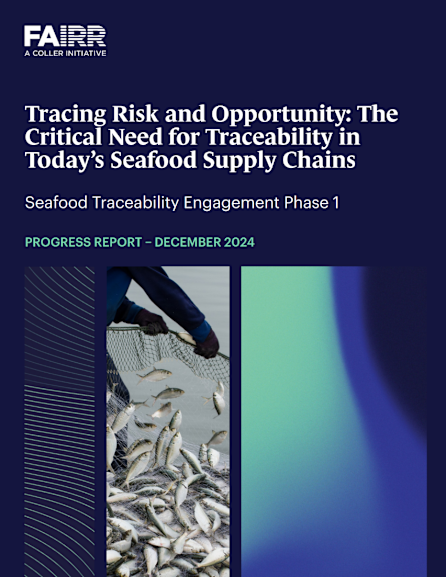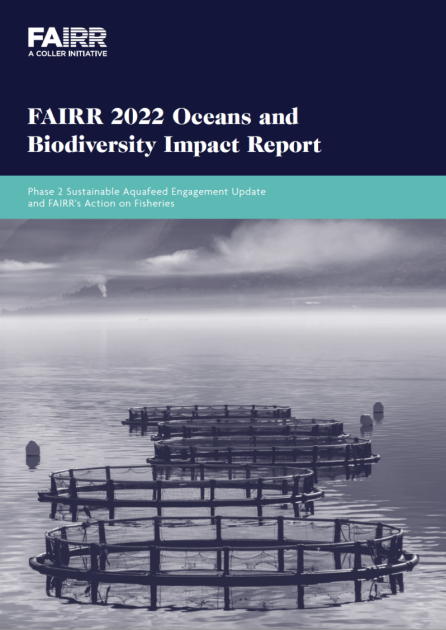
Seafood Traceability Engagement
Engagement Overview
Seafood plays a critical role in global food systems and economies, contributing to nutrition, livelihoods, and trade value in many regions. Seafood supply chain revenues generate an estimated US$1.8 trillion per year, equivalent to 2% of global GDP.
Yet as supply chains become more complex, the industry faces increasing scrutiny – as well as growing operational, reputational, and regulatory risks. These risks, which relate to environmental degradation, labour rights violations, and climate-related impacts, among others, can have material financial implications for companies and their investors.
Seafood traceability – the ability to track where seafood products come from and how they move through the supply chain – plays an important role in enabling companies and other stakeholders to accurately and efficiently identify and assess these risks.
Robust traceability systems provide transparency across the entire supply chain, for a company's full product range, in a digital and interoperable format that allows rapid access to information, and that includes a comprehensive and consistent set of relevant data points.
This Seafood Traceability Engagement encourages seven companies to address environmental and social risks and realise sustainable opportunities in seafood supply chains.
It asks companies to:
acknowledge the role that traceability plays in mitigating the environmental and social risks that they are exposed to;
set a time-bound commitment and provide a strategy to implement traceability systems that fulfil the leading criteria in terms of scope, depth, breadth and form;
disclose how they will deliver on their commitment, including reporting on progress and encouraging third-party verification.
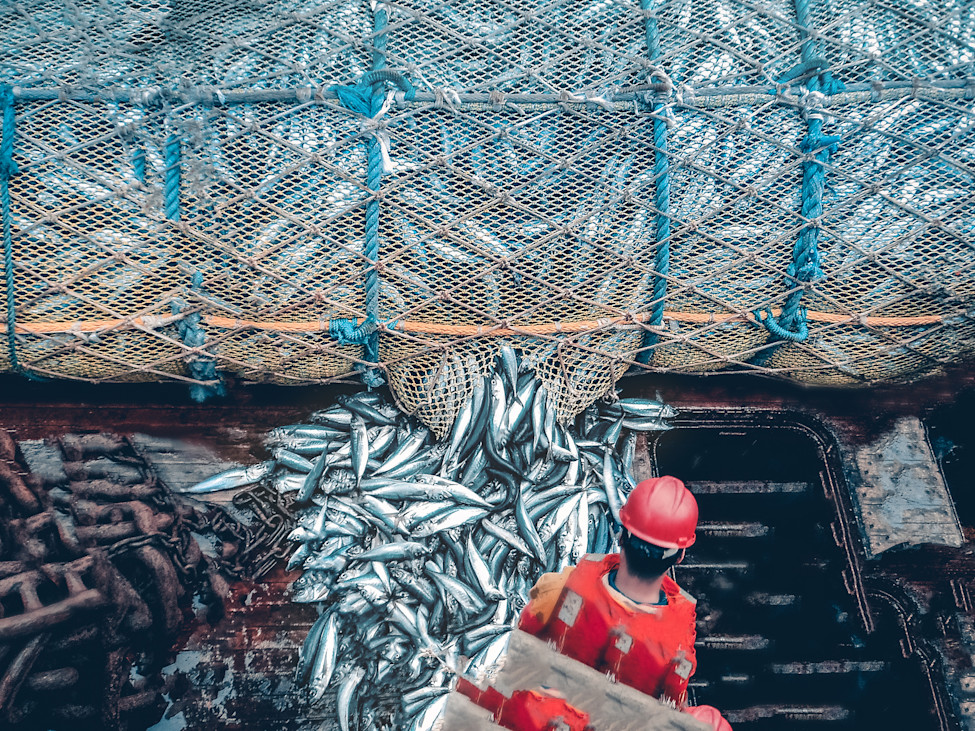
Selected Companies
This engagement focuses on seven of the largest global seafood companies. These companies were selected based on their sector influence (considering their market capitalisation and seafood revenues) and "traceability-readiness” (based on index scoring by the World Benchmarking Alliance).
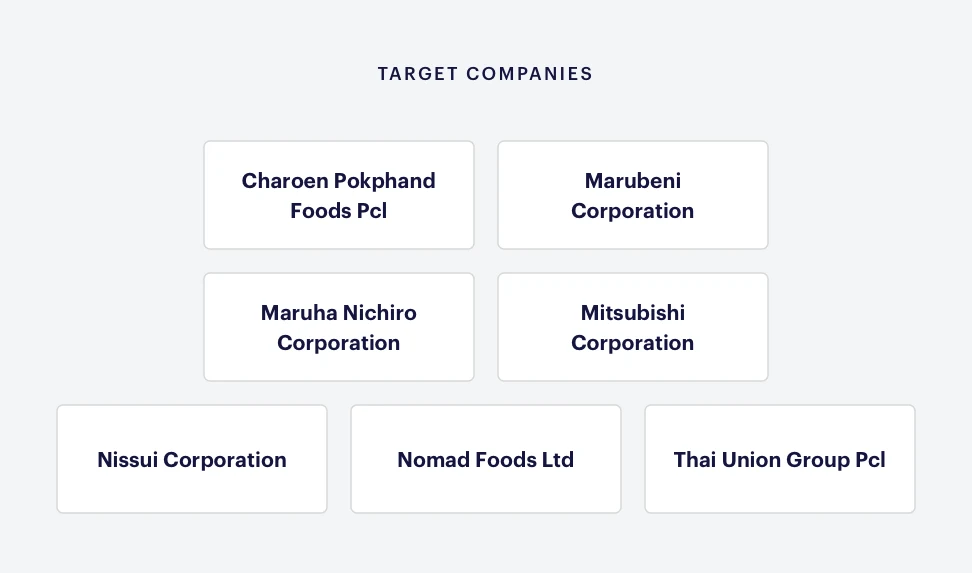
Material Risks
Approximately US$2 trillion - US$3 trillion of seafood-related assets and revenues may be at risk over the next 15 years because of the damage done to our oceans by excessive fishing efforts, reductions in habitat quality (coral reefs and mangroves), nutrient pollution, and disease outbreaks.
For seafood companies and their investors, better understanding their impacts and dependencies on nature, and mitigating their exposure to these potential risks, are mission critical: traceability is a key tool to achieve this.
Full-chain traceability can also unlock numerous opportunities, enabling seafood companies to validate sustainability claims and satisfy the growing demand for sustainable seafood, while also increasing their operational efficiency with more and better data. Research by Planet Tracker found that just a small investment in the right seafood traceability systems – as little as 1% of total product sales on average – could boost the industry’s profitability by 60%, by helping to cut spending on food recalls and waste, while strengthening brand reputation and enhancing regulatory compliance. This could unlock a predicted US$600 billion-increase in the valuations of companies in the global seafood supply chain.
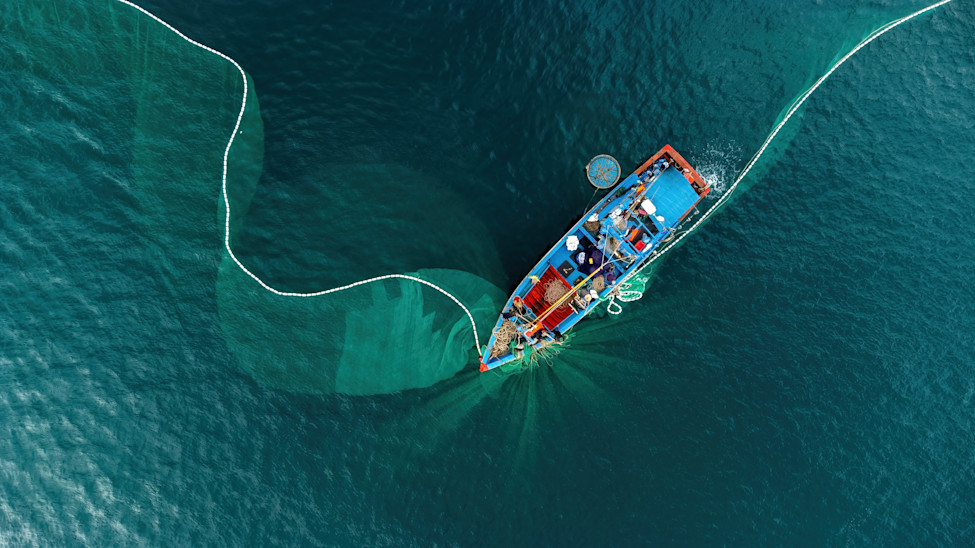
In Collaboration
FAIRR is working alongside the World Wildlife Fund, Planet Tracker, the World Benchmarking Alliance, and the UN Environment Programme Finance Initiative’s Sustainable Blue Economy Finance Initiative to deliver this engagement.
This engagement is funded by the Jeremy Coller Foundation, the Walton Family Foundation and the Gordon and Betty Moore Foundation.
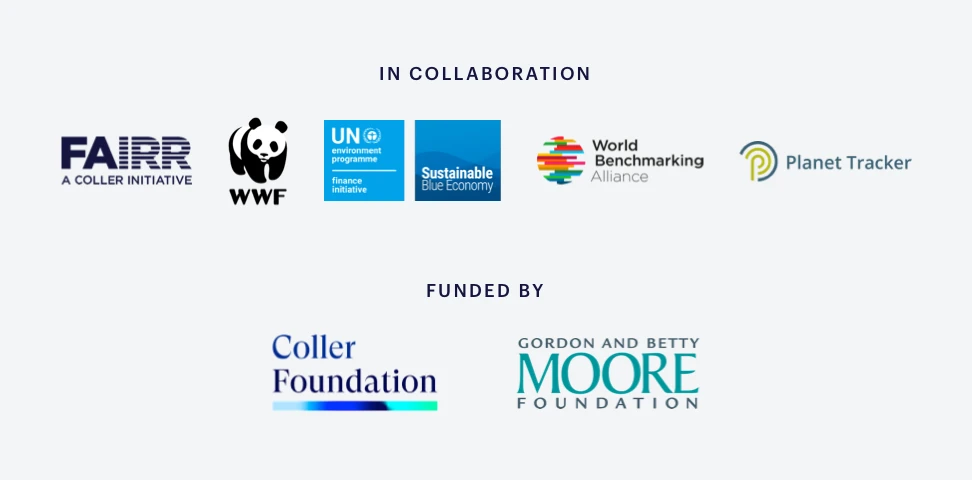
Investors Signed On
Phase 2 of the engagement has now concluded. The latest progress report, Traceability in Seafood Supply Chains: An Imperative for Investors, was published in February 2026.
Phase 2 of the engagement was supported by 45 investors, representing more than US$9.6 trillion in combined assets.

